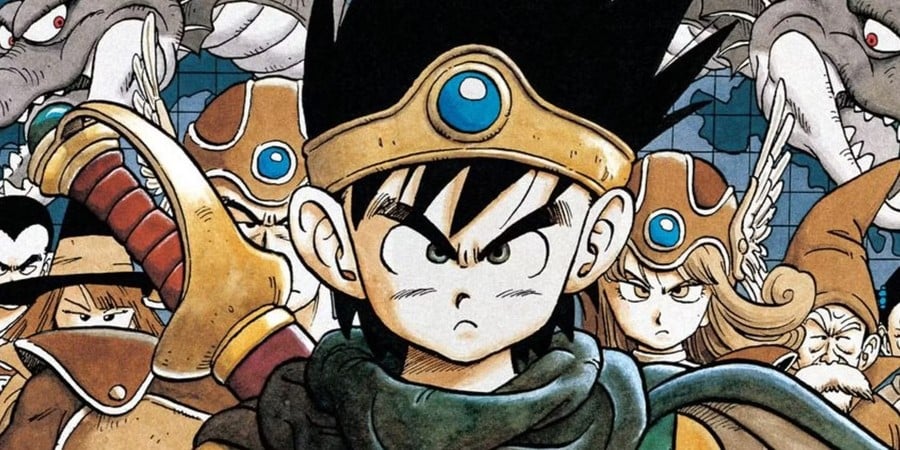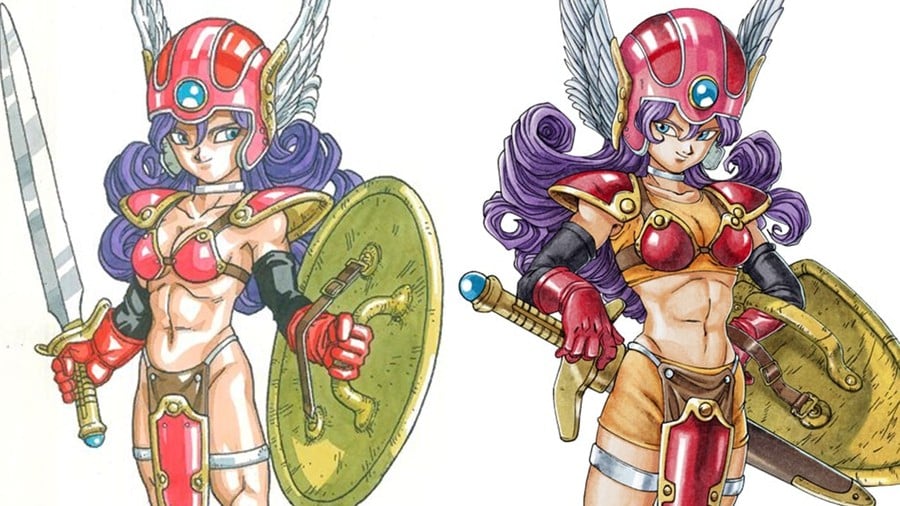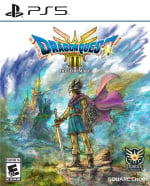
Update [Fri 4th Oct, 2024 09:00 BST]: Dragon Quest creator Yuji Horii and former Shonen Jump editor Kazuhiko Torishima claim that their recent comments about censorship were "mistranslated" and taken out of context (thanks, Nintendo Life).
The pair take issue with one aspect of the original translation by Valute News and say that because the comments were taken from a much larger discussion, they lack context.
The translated video has since been removed from Twitter, as has the episode of KosoKoso Hōsō Kyoku from which it was taken.
Here's Apple's translation of the statement:
Regarding the live broadcast "~Denfa is live broadcast from Makuhari ~ Game Creators Special WITH Yu & Masirito's KosoKoso Broadcasting Station", which was implemented on Saturday, September 28, 2024, currently on SNS, some of the performers The statement was mistranslated by a third party other than the person involved when translating it into English, and the statement has been spread as a mistranslation.
Not only that, but some of the performers' statements were particularly cut out, and the speaker was quoted as if he was expressing a negative opinion on a specific ideology or belief, and it was far from the true meaning of the statement and the original content and message of this video.
And the malicious videos and transcripts quoted above are spread on multiple YouTube channels and SNS accounts, and videos and articles that are accompanied by incorrect English translation subtitles and articles that are used as sources in Japan It has not only spread and spread to the outside of the country.
Mistranslation Applicable part
Positive: "Puritan"
Error: "Sex education"Such a situation causes an unintentional misunderstanding by the speaker, and we are very sorry that there is a risk of damaging not only the performers themselves but also the rest on the relevant parties, and we strongly protest against the actions that led to such a situation. It's something to do.
Therefore, please refrain from spreading articles based on mistranslations and arbitrary clipping videos that are different from the original content and message of the entire video.
In addition, from the above perspective, please refrain from the following actions that are carried out in a way that separates the intention of the speaker and the original content and message of this video
・The act of cutting out a video that the speaker did not intend and spreading the video
・Incomplete transcription and dissemination of transcription that cut out part of the video
・Dissemination of cropping videos and transcriptions with mistranslated subtitles
・The act of arbitrarily cutting out a part of the statement and quoting it as a statement that follows one's own opinion in order to reinforce the legitimacy of one's own opinionIn addition, please refrain from cutting out and spreading statements in videos and videos in a form that ignores the context before and after the statements are made and the nuances of statements similar to the above acts.
We appreciate your cooperation in considering the above for game fans and viewers around the world.
※In addition, this statement does not deny or prohibit all posts, impressions, and posts that mention this matter and the contents of the distribution.
Original Story [Mon 30th Sep, 2024 11:45 BST]: If you've been following the development of the upcoming Dragon Quest III HD-2D Remake, then you'll be aware that the late Akira Toriyama's artwork has been updated for this new release, with female characters generally showing less skin than before.
The character that has been impacted the most is the female Warrior, who now wears clothing underneath her (admittedly revealing) armoured bikini.
Speaking at the recent Tokyo Game Show, series creator Yuji Horii and former Shonen Jump editor Kazuhiko Torishima (a key figure in the inception of the first game) touched upon the delicate topic of censorship in a surprisingly candid exchange.

The conversion has been translated by Valute News, and sees Horii admit that he is confused as to why the changes have been made before adding that "if there’s too much exposure, the age rating goes up. It means we won’t be able to sell it as an all-ages product."
Torishima then wades in with his own take on the notion of toning down content to reach the desired age rating, and seems to point the finger at overseas markets, rather than Japan's own CERO rating system:
It's like an absolute god. An evil disguised as good. There's no such thing as content which that doesn't make everyone uncomfortable. Because beauty and ugliness, good and evil, are different for everyone...
There’s a religious concept from the West, especially in America, that influences their approach to sex education, right? Their approach to compliance is really narrow-minded. When selling manga in America, everything had to be categorised by age groups. Because there’s a risk of lawsuits, the company also has to get insurance.
Doing business with such a ridiculous country is really frustrating. Because of that, Japan also gets negatively influenced.
Horii adds that the character selector in the game has changed from "male" and "female" to "Type A" and Type B" before saying, "I really wonder who’s even complaining about this?” This appears to be a reference to the drive by Western developers to be more gender-inclusive with their games.
Age ratings have clearly come a long way since the original Dragon Quest III was released in 1988, and serve an important role in protecting younger players from imagery and content that isn't suitable for them. Given their advanced ages, it's understandable that Horii and Torishima might yearn for a past when such matters were considered a little more trivial, at least in Japan.
However, given that the majority of people who will play the upcoming Dragon Quest remake are arguably going to be adults and not children, it's easy to see why the changes made to the game have caused such confusion and annoyance – doubly so when you consider that Toriyama is sadly no longer with us.







